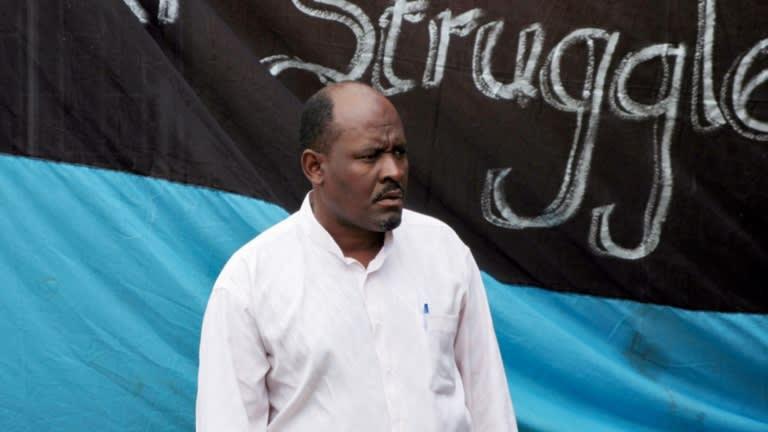Africa-Press – Mauritius. Peter Harris is an associate professor of political science at Colorado State University. Could the U. S. rest easy if its only military base in the Indian Ocean were under the sovereign authority of an African government instead of the U.K. ? At center stage is Naval Support Facility Diego Garcia, a critical hub for U. S. forces. The base is the sole reason that the U. K. clings onto the 58 small Indian Ocean isles that make up the Chagos Archipelago, of which Diego Garcia is the largest.
For decades, London has made Diego Garcia available to the Pentagon on the most favorable terms imaginable: no rent, few restrictions and little oversight.
The island is an enormous geopolitical asset for the U. S. , allowing for the projection of hard military power from the Persian Gulf to the South China Sea. Along with Guam, it is an anchor of U. S. strategy in the Indo-Pacific region. The nation closest to the Chagos is the Maldives.
But under first the French empire and then the British, the Chagos and its people were administered as part of the African island territory of Mauritius, some 2,150 kilometers to the southwest, rather than as part of the Maldives 1,280 km to the north.
The U. K. , however, held onto the Chagos as the British Indian Ocean Territory in 1968 when Mauritius became independent. But late last year, the U. K. began negotiating the return of the archipelago to Mauritian control. The U. K.
is under great political and legal pressure to decolonize the islands as most countries are on record as saying that the Chagos belongs to Mauritius and that continued British occupation is illegal. Every court and tribunal to adjudicate on the issue, including the International Court of Justice in 2019, has arrived at the same conclusion.
The Maldives last year said it would accept the Mauritian position that the Chagos never left its legal sovereignty, even though the Maldives’ own exclusive economic zone overlaps with the waters around Chagos.
Maldivians are understandably wary about what Mauritian control of the archipelago might mean for them, but apparently even Male can no longer pretend as though Britain’s case has merit.
But the question remains whether U. S. leaders can stomach Mauritius as the landlord of their Diego Garcia base. There is at least some evidence of disquiet in Washington.
Consider, for example, the objections raised by Mike Waltz, the most senior Republican on the House Armed Services Subcommittee on Readiness. In a recent letter to U. S.
Secretary of State Antony Blinken and Secretary of Defense Lloyd Austin, the Florida congressman raised eye-popping concerns about a hypothetical Mauritian scheme to hand over Diego Garcia to the Chinese military.
Such suggestions of a Sino-Mauritian plot want for nothing in terms of shock value. But the reality is far duller. The U. S. has precisely nothing to fear from Mauritius, a fully democratic state with long-standing ties to London, Washington and New Delhi.
There is no security relationship between Mauritius and China. Importantly, Mauritius has already offered the U. S. a 99-year lease on Diego Garcia. There are no reasons to doubt the sincerity of Mauritian diplomats on this point, meaning that U.S. access to the island is not in jeopardy. America’s leaders must not succumb to the perverted logic that an illegal colonial outpost can underpin the emerging rules-based order in the Indo-Pacific region.
The more rational and farsighted response is for Washington to give its full support to the decolonization of the Chagos Archipelago, including Diego Garcia.
This approach would cement ties with Mauritius and other regional governments, put an irreplaceable military base beyond political and legal peril, and strengthen the wider international order upon which U.
S. national interests depend. Returning the Chagos group to Mauritius would also benefit the Chagossians, the indigenous people of the islands. Because of U. S.
entreaties, British officials forcibly and criminally depopulated the archipelago between 1965 and 1973 as a prelude to the construction of the Diego Garcia base.
All told, the U. K. expelled more than 1,500 residents. Today, the Chagossian diaspora, mostly spread across Mauritius, the Seychelles and southern England, is divided on the question of sovereignty.
Some exiled islanders and their descendants distrust Mauritius with a passion, preferring continued British rule. Others demand to be treated as an equal party to negotiations alongside Britain and Mauritius.
The largest Chagossian organization, the Chagos Refugee Group, has adopted a pragmatic approach. Led by activist Olivier Bancoult, this group accepts the legal determination that the archipelago belongs to Mauritius and views Mauritian control as the only way to secure a right of return and resettlement.
This makes sense since British governments have been opposed to resettlement for years. Despite continuing and repeated legal challenges, the Chagossians have had no success overcoming the failure they encountered a decade ago when the European Court of Human Rights declined to hear their case.
Mauritius, on the other hand, is openly in favor of resettlement. This means that the decolonization of the Chagos holds the promise of righting two wrongs: the illegal dismemberment of the territory of Mauritius and the obscene displacement and exile of the Chagossian people.
What is more, none of this need come at the expense of British or American security interests. In just a few weeks’ time, Mauritius will celebrate 55 years of independence.
U. S. President Joe Biden should help to ensure that the country receives a birthday present to remember: full decolonization of its territory at long last.
For More News And Analysis About Mauritius Follow Africa-Press







